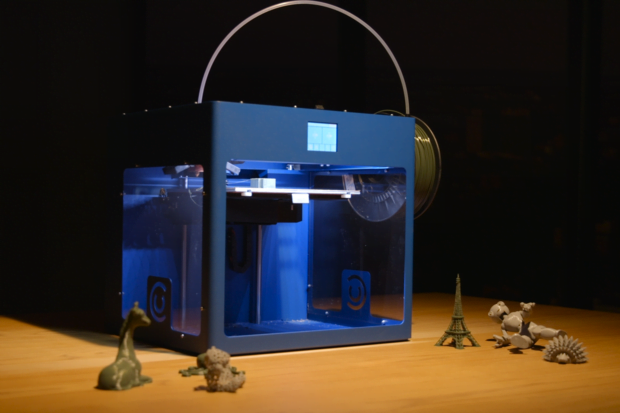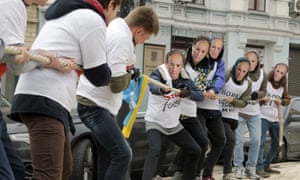
The dividing lines of the referendum are clearly drawn. Supporters say a yes vote will deliver security and trade; opponents see a chance to wrest back control from the so-called undemocratic forces of Brussels. Accusations of lies and spin are batted around on both sides. Many voters are confused or indifferent.
This is not Britain, but the Netherlands. On Wednesday the Dutch will take part in the other referendum that is sending shivers through the EU establishment, a vote that has exposed bitter rifts in attitudes towards Brussels – and Moscow.
It is the country’s first referendum since 2005, when voters rejected the EU constitution. This time, unlike their British counterparts, the Dutch will not be voting on whether to leave or remain in the EU, but on the more obscure issue of an association agreement with Ukraine that aims to deepen trade and cooperation.
The treaty has already been signed by 27 other EU member states, approved by the Dutch government and has partly entered into force.
But the Dutch government was forced to call a non-binding referendum on the agreement after a coalition of Eurosceptic groups gathered 420,000 signatures, enough to trigger a popular vote. The petition was organised by GeenStijl, a satirical website best known for its irreverent takes on Islam and immigration, working with two Eurosceptic thinktanks.
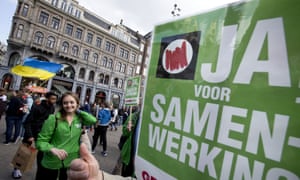
“It’s supposed to be a warning to the EU that they suffer from a democratic deficit,” said Bart Nijman, an editor at GeenStijl, which translates as “No Style”. “I don’t really care if it is a yes or no,” he told the Guardian. “We forced this referendum because we want people to have a say and more direct democracy.”
Thierry Baudet, another leading figure in the no campaign, says he originally wanted a version of the UK’s referendum lock, a measure introduced by David Cameron that means any treaties or significant changes to EU lawmaking have to be approved by a popular vote.
The referendum lock failed, but Dutch lawmakers did pass a law that allows referendums if a campaign picks up 300,000 signatures.
A lacklustre campaign
The Ukraine treaty is an almost random pretext for the referendum, the first to come under the new law. In many ways it is a strange subject for a popular vote: 2,135 pages of dense legal text covering lofty hopes on the rule of law and human rights, to the humdrum business of trade tariffs on apricots to uranium ore.
In Ukraine, this was the document that started a revolution, but it has not fired up much political debate in the Netherlands.
The campaign has been slow to start. The news agenda leading up to the campaign has been dominated by the Brussels attacks; then the death of football legend Johan Cruyff shunted everything else off the front pages.
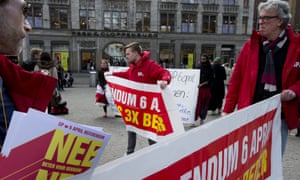
The latest poll by I&O and Dutch newspaper Volkskrant, which has been shared with the Guardian, gives the no campaign the edge, with 47% against, 36% in favour and 18% undecided (rounding brings the total to 101). An earlier poll commissioned by the foreign ministry showed both sides running neck and neck, while analysts caution that motivated voters tend to be overrepresented in the country’s internet polls.
“If I had to predict based on what we see now, I would say against will win,” the I&O senior pollster, Peter Kanne, said. But he pointed out that polls putting the no side ahead could spur yes supporters to the polling stations. “Many people, especially higher-educated people, they don’t like this referendum at all, they will only vote when they think no is going to win.”
Turnout is likely to be low. Kanne estimates only about 30% to 40% of the electorate will vote, far lower than the 63% turnout in the 2005 vote on the EU constitution, although enough to clear the 30% threshold required to make the referendum valid. The EU constitution “was much more concrete”, Kanne said: “Now we have a subject that is so vague and it is so unclear for people what a vote means.”
That chimed with some voters in The Hague. “It is very complex, it is very difficult … I have to read about it,” said one undecided female voter on her way to the central station. Her companion, 65-year-old Harry Lufting, said he would be voting yes because “it gives a chance to Ukraine to develop economically”. “I hope it will work out in a positive way but it is much too difficult to say,” he added.
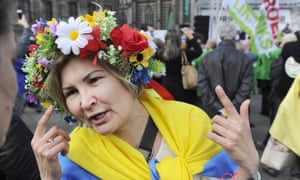
Some people don’t want to vote at all. Xander, a project manager in his 40s, said he supported the association agreement but would not be voting because he disagreed with the idea of a referendum. “It should be about the subject itself, not about whether a few people get a referendum. That is my problem with it.”
Frans, a 58-year-old civil servant, said he planned to vote no “because it is important for a stable Europe that we have a neutral Ukraine … We are interfering in the sphere of the Russians and this is not needed.”
The Russian question
Ukraine may have been the pretext for the vote, but the country’s fate has been a serious discussion point in the campaign, with the Russian president, Vladimir Putin, getting a walk-on part. One poster for the yes side features a cartoon of a wrinkly-faced Putin brandishing a pen and standing by a map of Europe with Ukraine coloured red: “Don’t let Putin finish his colouring. Vote yes on 6 April”
Relations between the Netherlands and Russia have been especially tense sinceMalaysian Airlines flight MH17 was shot out of the sky by a Buk missile, killing all 298 people on board, including 193 Dutch citizens.
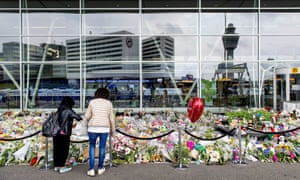
The no side has been accused of rehashing Kremlin arguments about Ukraine. “What is very clear is that the message being put out by the no campaign is very similar, if not identical to some of the things the Kremlin has been saying,” said Michiel van Hulten, a former Labour MEP and a spokesperson for the yes campaign.
Baudet rejects that charge but does largely blame the EU for the crisis in Ukraine. The 33-year-old author contends that the current situation in Ukraine “could easily have been prevented by completely different attitude and behaviour of the European Union”.
“We are not taking into account the reality of the economy there. Russia has blocked free trade with Ukraine as a consequence of the [association] agreement. The country is utterly divided … and the reforms we are going to get are largely paper reforms and in reality nothing will change.”
Meanwhile, Eurosceptics are crossing their fingers for a no vote. Nigel Farage, the leader of the UK Independence party, who will be addressing activists for the no campaign in Amsterdam on Monday, recently said: “If you win your referendum, my goodness me, that’ll help in Britain too.”
Another headache for Brussels
Unsurprisingly, the vote has caused apprehension in the EU establishment, grappling as it is with multiple crises from migration to how to deal with Putin’s Russia. The president of the European commission, Jean-Claude Juncker, warned that a no vote could cause “a continental crisis”. The former European council leader Herman Van Rompuy said a victory for no would be a disgrace for the Dutch government that would make the Netherlands “a less trustworthy partner”.
The Dutch government is trying to take the heat out of the campaign. “The word [sic] ‘continental crisis’ is an overused word these days,” the foreign minister, Bert Koenders, said in a recent interview with the Guardian and four other European newspapers.
“It would be arrogant and not very democratic” to dismiss the vote, he said, but“if we would say at this point yes we will automatically follow [it], then from now on, it wouldn’t look like an advisory mechanism.”
“What I think is important is to define what this question is really about. It is not about accession to the European Union; it is not about billions of euros to the Ukraine. It is not about visa liberalisation,” he added. “I believe in the sense of the Dutch people to give the answer they find appropriate.”
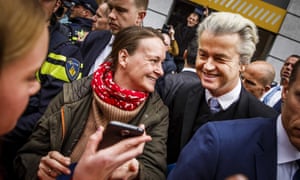
The vote comes at a difficult time for the government, a fragile coalition of the country’s main centre-right and centre-left parties led by the prime minister, Mark Rutte. The government’s popularity has slipped amid the febrile backdrop of Europe’s migration crisis that has seen poll ratings spike for Geert Wilders and his far-right Freedom party. With elections due in March 2017, analysts think the government is playing it safe.
“The current Dutch government is in favour of the treaty but is not willing to campaign too strongly,” said Simon Otjes, a researcher at Groningen University. “They fear that if they campaign too strongly it will become a referendum about them.”
The coalition is unstable, he said, but negative polls mean the two sides prefer to stick together. “The polls are particularly negative for the Labour party, so it is unlikely that they will let the government fall because then they will lose the elections.”
Yes supporters despair at the government’s lacklustre campaign. “If a government has signed an agreement in Brussels, they need to be outspoken in the Netherlands about why they signed,” said Stientje van Veldhoven, an MP for the liberal D66 party, which is one of the most active yes vote campaigners. And her advice for prime ministers hoping to win a referendum? “They need a clear stance, because people need to trust them and they need to be accountable.”
[Source:- The Guardian]

